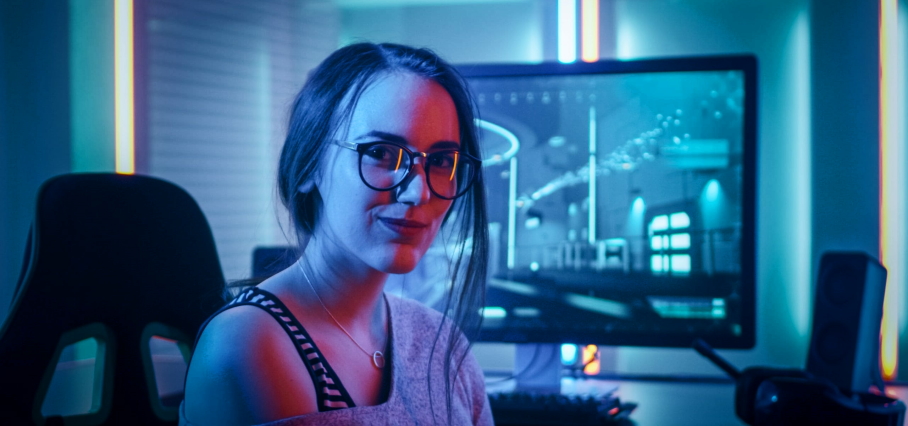
Artificial lighting has been shown to cause several skin problems, including premature aging. This is because artificial light can alter the body’s circadian rhythm and disrupt sleep cycles. It also causes a person to spend more time exposed to these lights, leading to vitamin D deficiency, weakened immune system, increased risk of diabetes, obesity, and cancer, among other health issues. Using natural daylight in the workplace or at home may help avoid some of these negative effects by providing better quality light that is less harsh on the skin than artificial light sources such as fluorescent bulbs.
The dangers of artificial light on the skin
 Artificial light has many benefits but can also be detrimental to the skin. Therefore, women need to understand the effects of artificial lights to take appropriate measures to protect their skin.
Artificial light has many benefits but can also be detrimental to the skin. Therefore, women need to understand the effects of artificial lights to take appropriate measures to protect their skin.
Artificial light has many benefits but can also be detrimental to the skin. Therefore, women need to understand the effects of artificial lights to take appropriate measures to protect their skin.
Artificial light is a necessary evil of modern life. We depend on it for many aspects of our lives, including the ability to see during the daytime and avoid hazardous conditions such as darkness or fog. But what are some unintended consequences? One effect is that artificial light can lead to skin damage in premature aging, dryness, inflammation, acne breakouts, and more.
Ways to protect your skin from the effects of artificial light
As the use of artificial light has grown, so has our understanding of how it impacts our skin. For example, exposure to artificial light during the day can lead to premature aging and dryness in the skin, while exposure at night can lead to insomnia and fatigue. Luckily there are many ways you can protect your skin from these effects. Here are some tips on how you can minimize your exposure to artificial light to preserve your youthful appearance:
- Give up watching television before bedtime by using a DVR or recording shows for later viewing;
- Avoid bright screens like laptops when possible; install dimmer switches in all rooms with lights that have them, especially bedrooms;
- Remove electronic devices from sleep areas such as televisions, computers, tablets, and smartphones.

The effects of artificial light on the skin can be damaging. For example, UV rays and blue lights from screens, TVs, and other electronics emit harmful radiation detrimental to the skin’s appearance. The natural oils in our skin protect us from some of these negative effects, but not all of them.
Nightlights have been the go-to solution for parents of babies and children who are afraid of the dark. But did you know that artificial light can be bad for your skin? Read on to find out more!
We spend so much time indoors these days with all our electronics – computers, TVs, smartphones – that we’re exposed to a lot more artificial light than ever before. Artificial lighting is typically blueish, which means it has different wavelengths than natural daylight (which contains no blue). And this difference between natural and artificial lighting can affect how our body reacts. For example, studies show that people’s circadian rhythms are disrupted by exposure to excessive amounts of artificial light at night; they become unable to sleep well or feel alert during the daytime.


